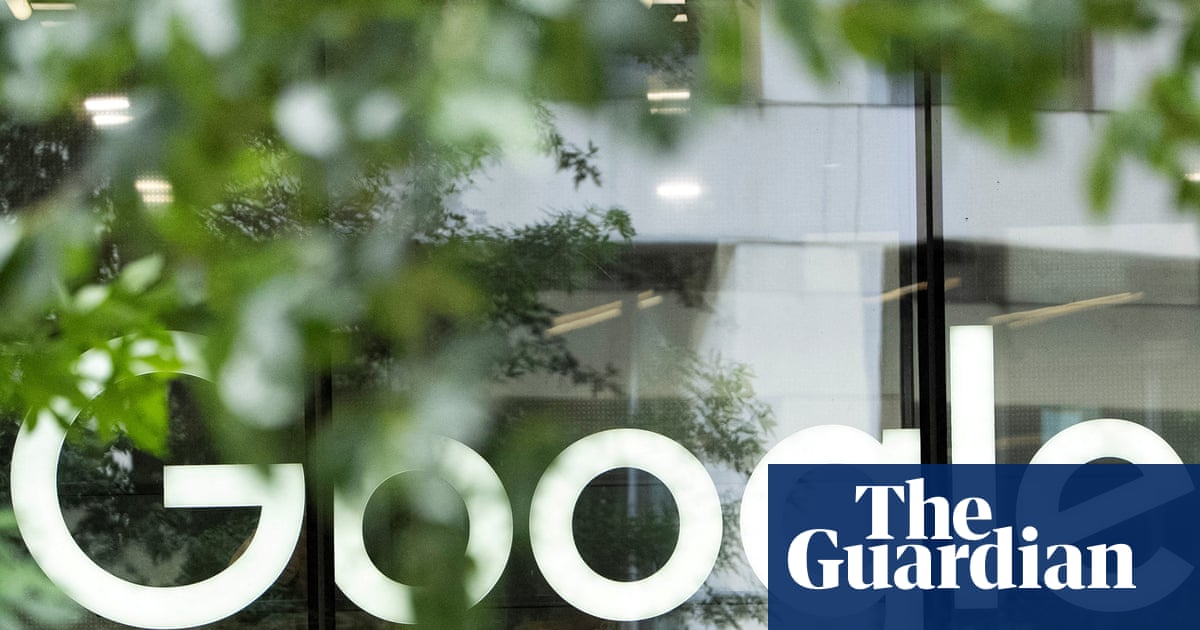News companies have been warned of a “devastating impact” on online audiences as search results are replaced by AI summaries, after a new study claimed it caused up to 80% fewer clickthroughs.
The threat posed by Google’s AI Overviews, which summarise a search result with a block of text, has rapidly risen to the top of the concerns among media owners. Some regard it as an existential threat to outlets reliant on search result traffic.
AI summaries can give users all the information they seek without ever clicking through to the original source of the content. Meanwhile, search result links are pushed further down the page, lowering the number of users that find them.
A new analysis by the Authoritas analytics company has found that a site previously ranked first in a search result could lose about 79% of its traffic for that query if results were delivered below an AI overview.
The study also found that links to YouTube – owned by Google’s parent company Alphabet – were more prominent compared with the normal search result system. The research has been submitted as part of a legal complaint to the UK’s competition watchdog about the impact of Google AI Overviews.
A Google spokesperson said in a statement the study was “inaccurate and based on flawed assumptions and analysis”, using outdated estimations and a set of searches that did not represent all the queries that would generate traffic for news websites.
“People are gravitating to AI-powered experiences, and AI features in search enable people to ask even more questions, creating new opportunities for websites to be discovered,” the spokesperson said. “We continue to send billions of clicks to websites every day, and we have not seen dramatic drops in aggregate web traffic as is being suggested.”
A second study also showed a big hit to referral traffic from Google AI Overviews. A month-long survey of almost 69,000 Google searches, run by the Pew Research Center, a US thinktank, found users only clicked a link under an AI summary once every 100 times.
A Google spokesperson said that study also used “flawed methodology and skewed queryset that is not representative of search traffic”.
Senior news executives say Google has repeatedly refused to share the data they need to calculate the impact of the use of AI summaries.
Quick Guide
Contact us about this story
Show
The best public interest journalism relies on first-hand accounts from people in the know.
If you have something to share on this subject you can contact us confidentially using the following methods.
Secure Messaging in the Guardian app
The Guardian app has a tool to send tips about stories. Messages are end to end encrypted and concealed within the routine activity that every Guardian mobile app performs. This prevents an observer from knowing that you are communicating with us at all, let alone what is being said.
If you don’t already have the Guardian app, download it (iOS/Android) and go to the menu. Select ‘Secure Messaging’.
SecureDrop, instant messengers, email, telephone and post
See our guide at .com/tips for alternative methods and the pros and cons of each.
While the AI Overviews only make up a slice of Google searches, UK publishers have already said they are feeling the effects. The MailOnline executive Carly Steven said in May the site was experiencing a large drop in clicks from search results featuring an AI summary, with clickthrough rates dropping by 56.1% on the desktop site and 48.2% on mobiles.
The legal complaint to the UK’s Competition and Markets Authority is a collaboration between the tech justice group Foxglove, the Independent Publishers Alliance and the Movement for an Open Web.
Owen Meredith, the chief executive of the News Media Association, accused Google of trying to keep users “within its own walled garden, taking and monetising valuable content – including news – created by the hard work of others”.
“The situation as it stands is entirely unsustainable and will ultimately result in the death of quality information online,” he said. “The Competition and Markets Authority has the toolkit to tackle these issues. It must do so urgently.”
Rosa Curling, the director of Foxglove, said the new research demonstrated the “devastating impact that Google’s ‘AI overviews’ are already having on the UK’s independent news industry”.
“It would be bad enough if Google were simply stealing journalists’ work and passing it off as their own,” she said. “But worse still, they are using this work to fuel their own tools and profits, while making it harder for media outlets to reach the readers they rely on to sustain their work.”









